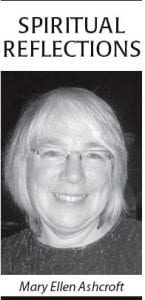“For me, camping is the Holiday Inn.” If I had a dollar for every time someone has said that to me, I’d be rich. Usually they say it when I’ve said something about going into the wilderness.
Comparing a hotel to the Boundary Waters….it’s hard to know how to answer. But maybe it is a good question: Why would I want to go into the wilderness and why take others? I have noticed that it’s easier to sleep in a bed, eat at a restaurant. Why would anyone expend the effort it takes to go into wilderness?
Why did the people behind The Wilderness Act of 1964 invest themselves in setting aside wilderness for future generations? Sigurd Olson and others believed that we humans need wild places so we might learn to listen, see and be in a deeper way. The legislation reads this way: “A wilderness, in contrast with those areas where man and his works dominate the landscape, is hereby recognized as an area where the earth and its community of life are untrammeled by man, where man himself is a visitor who does not remain.” (The Wilderness Act, 1964)
Entering the wilderness as visitors, we may begin to realize we are not in charge. We cannot control the temperature (by cranking up the heat or air conditioning); we can’t carry enough to be as comfortable as we might be at home. (I still haven’t seen anyone carrying a La-Z-Boy across a portage….)
In that forced simplicity, wilderness offers us a chance to experience a great truth: Our existence is precarious. I remember being in my tent in the Quetico as a couple of large trees snapped off in a high wind. Adrenaline rush: “Run for shelter!” When we go into wilderness we can’t easily get to shelter or to a hospital. We are not in control, though most of us hate to admit it.
In Luke’s gospel, Jesus responds to a question about inheritance by telling a story: a man’s farms are prospering, and he decides to build bigger barns, and then “eat, drink, and be merry.” God says to him, “Fool. Your soul is required of you tonight. You won’t have a chance to enjoy those things.” Jesus closes his story by saying, “So it is with those who store up treasures for themselves but are not rich toward God.”
The “fool” realized too late how little control he had. He thought, as many of us do, that if he had enough backup, maybe he wouldn’t have to die. Christianity, The Twelve Step Program, and other great teachings offer this wisdom— you are not in control, and the sooner you get used to that idea the better. Our cars sliding us in climate control from place to place, country clubs, security systems, gated communities tell us: Don’t worry …nothing can go wrong.”
Wilderness tells the truth. Maybe that’s why it has played such a powerful role in our sacred and cultural texts. In Exodus, the people of Israel need time (say, 40 years) in the wilderness to right their perspectives. Jesus, we are told, “was led by the Spirit into the wilderness to be tempted by Satan.” Wilderness as a place of clarifying continued in early Christianity, when believers would leave the comforts of home to go live in the desert, sure they would see God more clearly there. In Shakespeare’s comedies, our heroes and heroines must spend time in the woods before they can come back as wiser, better people.
You can allow wilderness to teach you, though not everyone who goes to the wilderness does. Often people bring a macho approach— we’re here to conquer! We’ll show what we’re made of! I’ve seen them paddling furiously through crashing storms— they are going to camp on Gaskin tonight so that they can get to Cherokee tomorrow. They have an appointment with some fish on Alice! I want to stop them and say, “Be here. Listen. Look. Be.”
Wilderness can provide us glimpses we need: of ourselves, of our place in the world around us, of God. I remember once asking a group, “What do you leave behind when you come to the wilderness?” One woman shot back her answer, “Vanity and pretense.” Relinquishing those for a few days could change your life.
Our lives are full— demands from all sides, media clamoring for our attention. Thomas Merton must have had a glimpse at many of our calendars or our Blackberries when he wrote this: “To allow oneself to be carried away by a multitude of conflicting concerns, to surrender to too many demands, to commit oneself to too many projects, to want to help everyone in everything, is to succumb to the violence of our times.”
We all need to claim time for quiet, time to practice letting go. Listen, the wilderness is calling… Relinquish. Meet yourself. Meet God.
Each month a member of the
Cook County Ministerium
will offer Spiritual Reflections.
For August, our contributor
is Mary Ellen Ashcroft, the
priest in charge of Spirit of the
Wilderness Episcopal Church.



Loading Comments